Do you feel concerned? When looking at the numbers, it’s not surprising: 95% of French people suffer from stress or anxiety, according to the conclusions of this 2022 study.
Stress is a physical and emotional response of the body to danger or an unusual situation.
Anxiety, on the other hand, is more of a psychological response characterized by apprehension or worry.
The difference between the two is not easy to grasp. But whether it’s one or the other, they lead to significant impacts on our physical and mental well-being. The immune system, cardiovascular health, and mental health are all affected.
Before resorting to medication, what natural remedies can you use daily? I invite you to discover 10 natural anxiolytics and tips for managing stress and anxiety effectively on a daily basis.
Also read | Our advice on choosing the best anti-stress dietary supplement
1. Valerian
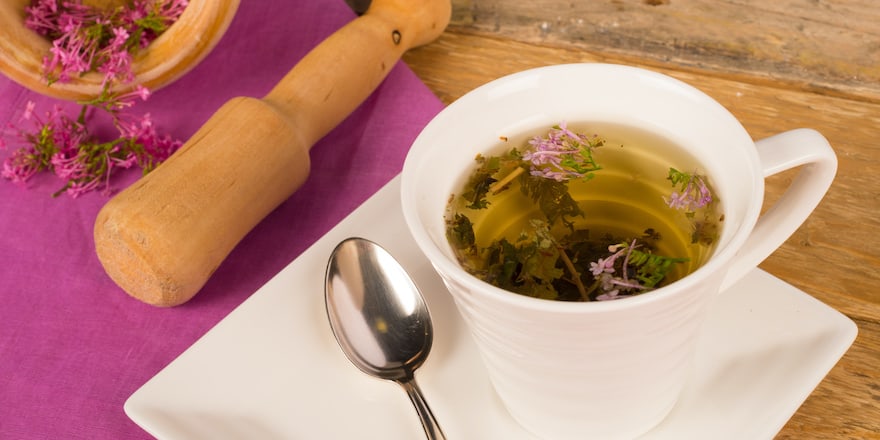
Valerian is one of the most renowned plants for its calming and relaxing effects, as well as its benefits for improving sleep quality.
It works by increasing the levels of gamma-aminobutyric acid (GABA) in the brain, a neurotransmitter that has a soothing effect on the nervous system, as shown by this study.
Practically, it can be consumed in the form of extracts, tablets, tinctures, or more simply as a tea.
In infusion, its action is more gradual. I recommend consuming it over several weeks to see benefits.
2. St. John’s Wort
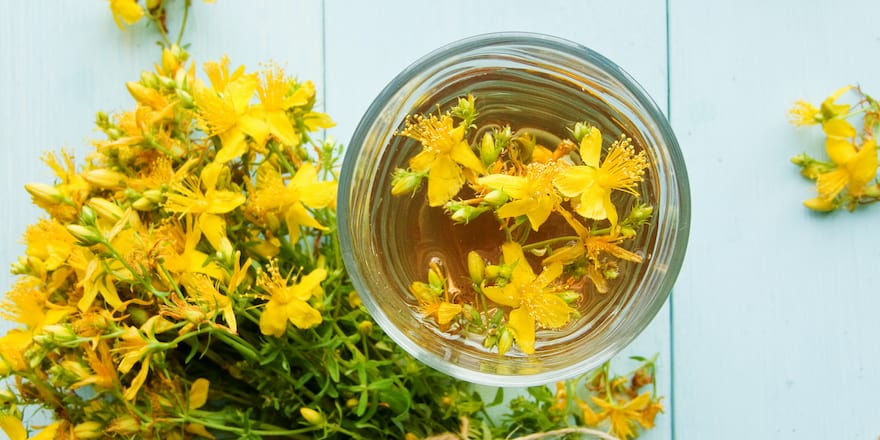
If there’s a natural remedy known to ease mild depression, it’s St. John’s Wort (or Hypericum perforatum).
Its mechanism of action? It contains active compounds such as hyperforin and hypericins, which act on the nervous system to promote relaxation and improve mood.
This study concluded that it has fewer side effects than standard antidepressants, making it an interesting alternative.
But be cautious with this plant. It is particularly known for its drug interactions with antidepressants, oral contraceptives, and others. Talk to your pharmacist to ensure this plant does not disrupt your treatments.
3. Rhodiola
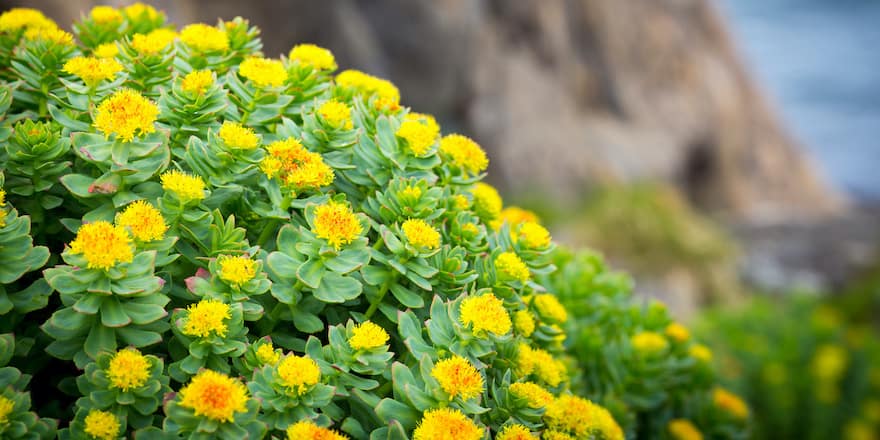
Rhodiola rosea is a natural anxiolytic known for calming nervous tension, stress episodes, and insomnia, as indicated by this study.
It is considered an adaptogenic plant in traditional medicine. Simply put, it helps you adapt more easily to stressful situations and handle them with more perspective.
The active components? The rosavins and salidrosides present in its composition may potentially act on serotonin (the happiness hormone), as well as norepinephrine.
4. Griffonia simplicifolia
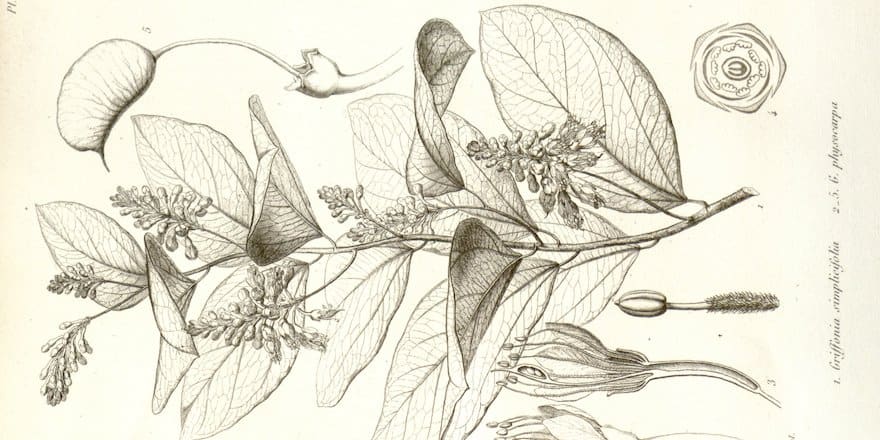
This plant from West Africa may have natural anxiolytic properties.
Its seeds contain a substance called 5-HTP (5-hydroxytryptophan), a derivative of the amino acid tryptophan. This is a natural precursor of serotonin.
By increasing serotonin levels in the brain, the 5-HTP derived from Griffonia could help reduce anxiety and promote a sense of calm and well-being. This is what this study concluded, although it was not conducted on humans.
You will find this plant in the form of a dietary supplement.
5. Ashwagandha
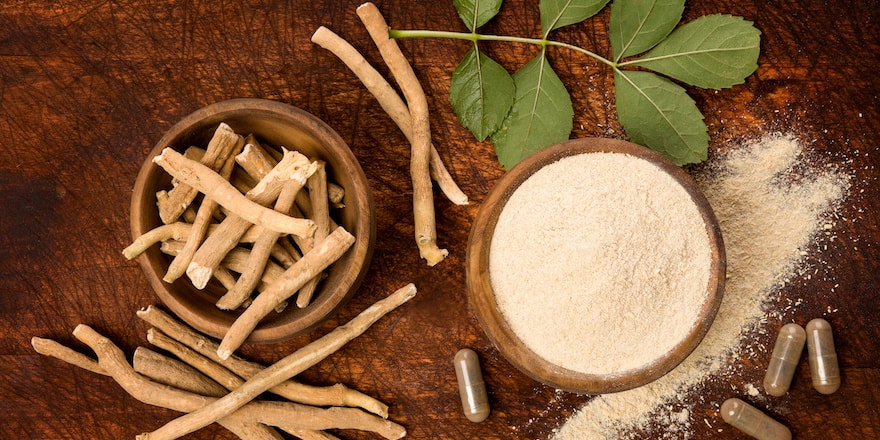
Sold in powder, capsule, or other supplement forms, ashwagandha is a great ally for combating stress and anxiety.
Just like Rhodiola, it is an ‘adaptogenic’ plant. Regarding composition, the withanolides found in its roots give it calming and relaxing properties. This review examined its effects.
Add a spoonful of ashwagandha powder to your evening moon milk for a soothing night.
6. Hawthorn
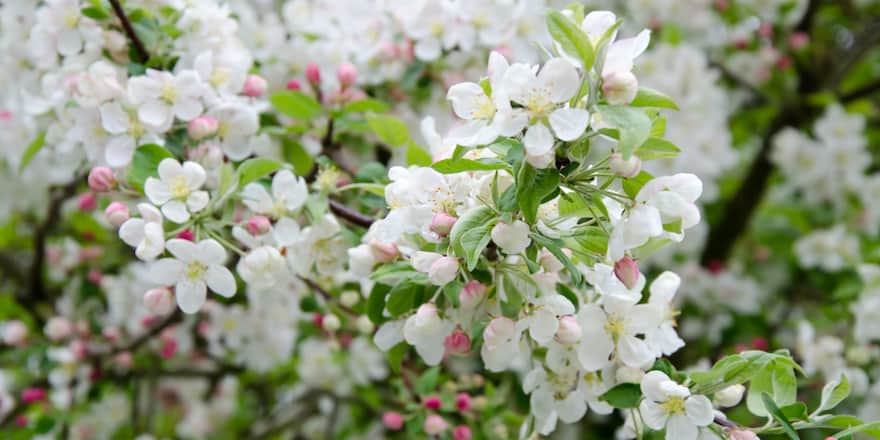
Rich in flavonoids and procyanidins, studies have already highlighted the plant’s properties in reducing excitability and promoting a state of calmness and relaxation.
It is often found in combination with valerian.
7. Lemon Balm
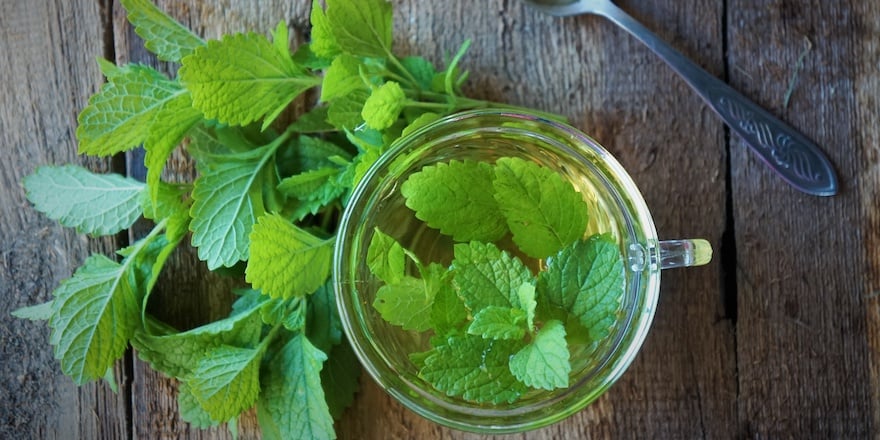
Reputed for its relaxing effects, particularly during painful menstruation, lemon balm helps combat stress and anxiety.
The reason? The polyphenols and terpenes it contains. It also helps to combat sleep disorders, according to this study.
8. Passionflower
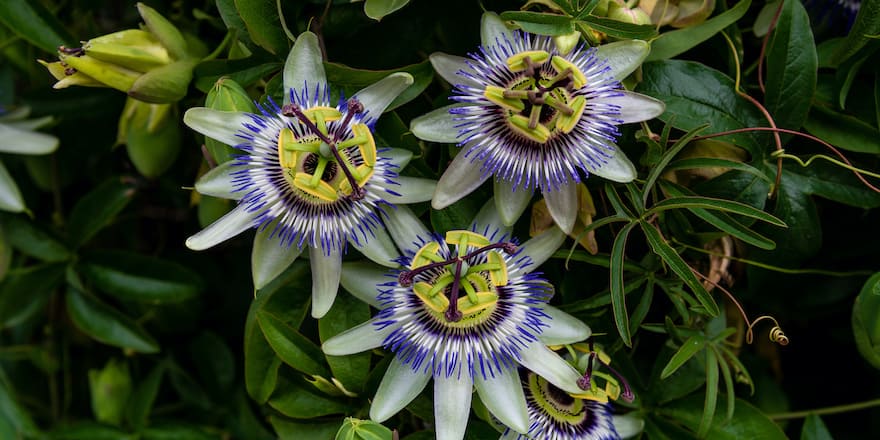
Passionflower, or “passion flower”, has been used for centuries to calm periods of mild anxiety and promote falling asleep.
Its mechanism of action is not perfectly understood but it is believed to be due to the flavonoids and alkaloids it contains.
Although this pretty flower is often consumed in supplements and teas, few scientific studies confirm its action as of today.
9. CBD

It’s impossible to miss the success of CBD in recent years. You know, this substance derived from cannabis but without the associated psychotropic effects?
Studies have shown that CBD can promote relaxation and calmness by interacting with the endocannabinoid system, which plays a role in mood and anxiety physiological processes.
While this substance can be consumed in the form of oil, drinks, or candies, it remains relatively new compared to some compounds and deserves further scientific studies. Nonetheless, I believe CBD has a promising future ahead.
10. Essential Oils
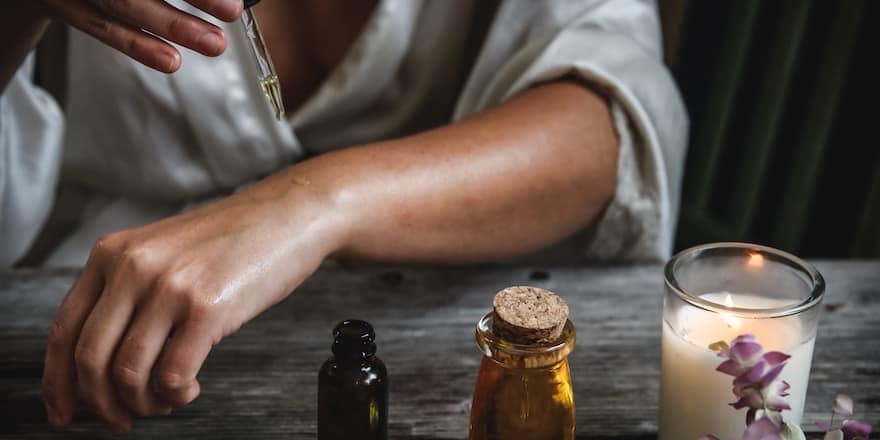
Besides plants to be consumed as supplements or teas, essential oils continue to show their naturally anxiolytic virtues. More than twenty essential oil derivatives with these benefits have been identified.
A number of them in aromatherapy share certain common chemical compounds (especially alcohols, as indicated by this study) providing potential effects on stress and anxiety.
Among them, prefer the following, the most renowned for these benefits:
- true lavender
- Roman chamomile
- ylang-ylang
- bergamot
As these products are potent and do not produce the same effects on everyone, exercise caution when using them. If in doubt, seek advice from your pharmacist.
My tips for reducing your anxiety
Yes, natural anxiolytic remedies are not limited to the ingestion of plants. Maintaining a healthy lifestyle is the foundation for reducing your level of anxiety:
- Exercise modulates the production of hormones like serotonin, endorphins, and cortisol, acts as a mild antidepressant, and aids relaxation.
- A balanced diet, rich in vitamins B, C, magnesium, and zinc is important for regulating mood and stress. If you think you are not meeting all your daily targets, there are vitamin or mineral dietary supplements available to you.
- Whether it’s sophrology, box breathing, heart coherence, or mindfulness meditation, scientific studies have already proven their benefits on reducing stress and mild anxiety.



